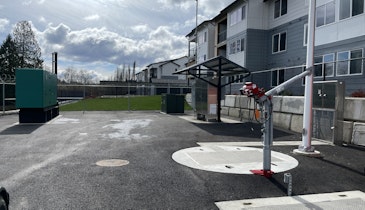The California State Water Resources Control Board approved regulations that would allow water agencies to develop treatment procedures to convert wastewater into drinking water — direct potable reuse — as reported by many news outlets.
“These regulations ensure that the water produced is not only safe, but purer than many drinking water sources we now rely on,” said Water Resources Control Board Chairman Joaquin Esquivel. The regulations comply with California’s Safe Drinking Water Act.
The proposal has been in review for over 10 years, undergoing expert panel analysis, scientific review, public input and the development of safety standards, and was approaching the state-mandated completion by the end of 2023.
The state’s goal is to recycle and reuse 800,000 acre-feet of water per year by 2030, with $8 billion earmarked to modernize the state’s water infrastructure.
This decision also helps address the state’s water shortages arising from continuing drought conditions.
Florida
As reported by Florida’s Voice, Rep. Peggy Gossett-Seidman, R-Highland Beach, and Rep. Lindsay Cross, R-St. Petersburg, introduced a bill that would create an emergency database to report contamination in state waters.
Residents would be alerted of contamination found at beaches, the Intracoastal Waterway, coastal estuaries, canals and public swimming areas regarding toxins that include fecal indicator bacteria-laden wastewater and chemicals. Sources of contamination could be anything from leaking septic tanks to malfunctioning treatment plants.
Under this bill, water safety alerts would be transferred from state agencies to the Department of Environmental Protection. A website with digital messaging would notify users to reports of water contamination.
“The complex reporting system between cities, counties and states is ineffective and outdated,” Gossett-Seidman said in a press release. “We need one central reporting method. Too often the public discovers the waters are contaminated days after they went to the beach.”
Idaho
While homeowners in Blaine County are subject to legal requirements for installing new septic systems, the Onsite Wastewater Management Program established in 2007 regarding inspection and management of existing systems was discontinued only two years later for lack of funding during the recession.
But hopes for reinstating the program continue to be brought up at city planning meetings and public hearings. It has surfaced again with two recent applications for 24-home subdivisions, reports the Idaho Mountain Express.
Bob Erickson, a former environmental health specialist, who worked with the county on the original 2007 plan, expressed his concerns regarding the lack of oversight, based on his 26 years’ experience with the South Central Public Health District. Erickson emphasized that most residents don’t know much about their systems and he didn’t believe a homeowners’ association was an appropriate governing body for managing wastewater issues.
The concerns center on the growing population and the problems with relying on homeowners to oversee something they’re generally unfamiliar with, potentially causing contamination to water sources from failing decentralized wastewater systems.
Louisiana
A proposed ordinance requiring septic system inspections every three years at a cost of $100 has been essentially defeated, reports Nola.com. The St. Tammany Parish Council voted to delay a vote on the ordinance “indefinitely.”
“To postpone indefinitely is a joke,” council member Rykert Toledano said. “This, to me, is the most important and needed legislation that we can look to pass in our parish. This problem should have been addressed 30 years ago.”
Sewage pollution from septic systems on the north shore is a serious problem, according to experts who had previously addressed the council. In some subdivisions, small PVC pipes trickling sewage can be seen dotting drainage ditches.
Critics were concerned about costs. While Parish officials said there would be some money available for people who needed their septic systems replaced, residents believed the costs to fix problems would be too high for the parish and its residents to bear.
Massachusetts
As reported in The Enterprise news outlet, the Mashpee, Massachusetts Board of Health was set to vote on a regulation requiring innovative/alternative septic systems for certain projects within 1,000 feet of wetland areas. Current regulations are 300 feet. The board will also vote on proposed fines for unlicensed or unpermitted septic system installations.
In addition, Health Agent Zackary J. Seabury said the Massachusetts Department of Environmental Protection’s new Title 5 septic system regulations, originally scheduled to start in January, have been postponed until July. The regulations will require I/A systems in new construction.
New York
As reported by several news outlets, Gov. Kathy Hochul announced $479 million in grants for critical water infrastructure projects, including the first funding awarded through the $4.2 billion Clean Water, Clean Air and Green Jobs Environmental Bond Act of 2022. Hochul’s team said the funding is projected to save ratepayers an estimated $1.3 billion and create 24,000 jobs.
An additional $30 million is being made available to targeted counties through the state’s septic system replacement program for homeowners and small business owners.
Virginia
Many Culpeper County residents are eligible for reimbursement of 50% to 80% of the expense of pumping, maintaining, repairing or replacing septic systems, depending on the needs of their system, reports the Culpepper Times. The Culpeper Soil and Water Conservation District grant program continues to expand its funding to help reduce bacteria pollution in local streams. Repairing or replacing dysfunctional septic systems helps reduce E. coli levels.
Pumpouts are recommended every three to five years and inspections are encouraged for older systems. If repairs are indicated during an inspection, owners are eligible for additional payments.
British Columbia, Canada
The town of Midland recently voted to stop accepting septage from nonresidents, reported Midland Today. In a 60-page report on the Wastewater Treatment Centre septage receiving station presented to city council from Tatham Engineering Limited, it was noted that between 2017 and 2022 only 12% of the septage loads originated in Midland.
“The recommendation will mean that Midland users are no longer subsidizing other residents from other municipalities,” said Deputy CAO Andy Campbell, executive director of infrastructure and environment. “If the wastewater plant only receives septage and hauled waste from within Midland, the volume is such that it can be handled without having to fully upgrade the equipment.”
Water and wastewater manager André Pepin added that funds from reduced operating costs will be allocated to wastewater infrastructure and maintenance projects at the wastewater treatment plant.
The announcement came as a surprise to many who rely on the facility, and leaves them scrambling for alternative disposal sites, especially as land application cannot be performed during winter and early spring.
Nation
In 2005 a partnership was created between the U.S. Environmental Protection Agency and eight private and public sector organizations, including the National Onsite Wastewater Recycling Association. Today the partnership has 25 members.
Those members gathered at EPA headquarters last December for a signing ceremony renewing the agreement titled U.S. EPA MOU Partnership for Decentralized Wastewater Management. Renewal is required every three years.
The partnership recognizes the importance of decentralized systems in the treatment of wastewater, promotes efforts to improve and manage these systems, and works to increase collaboration among members and the onsite wastewater industry.





